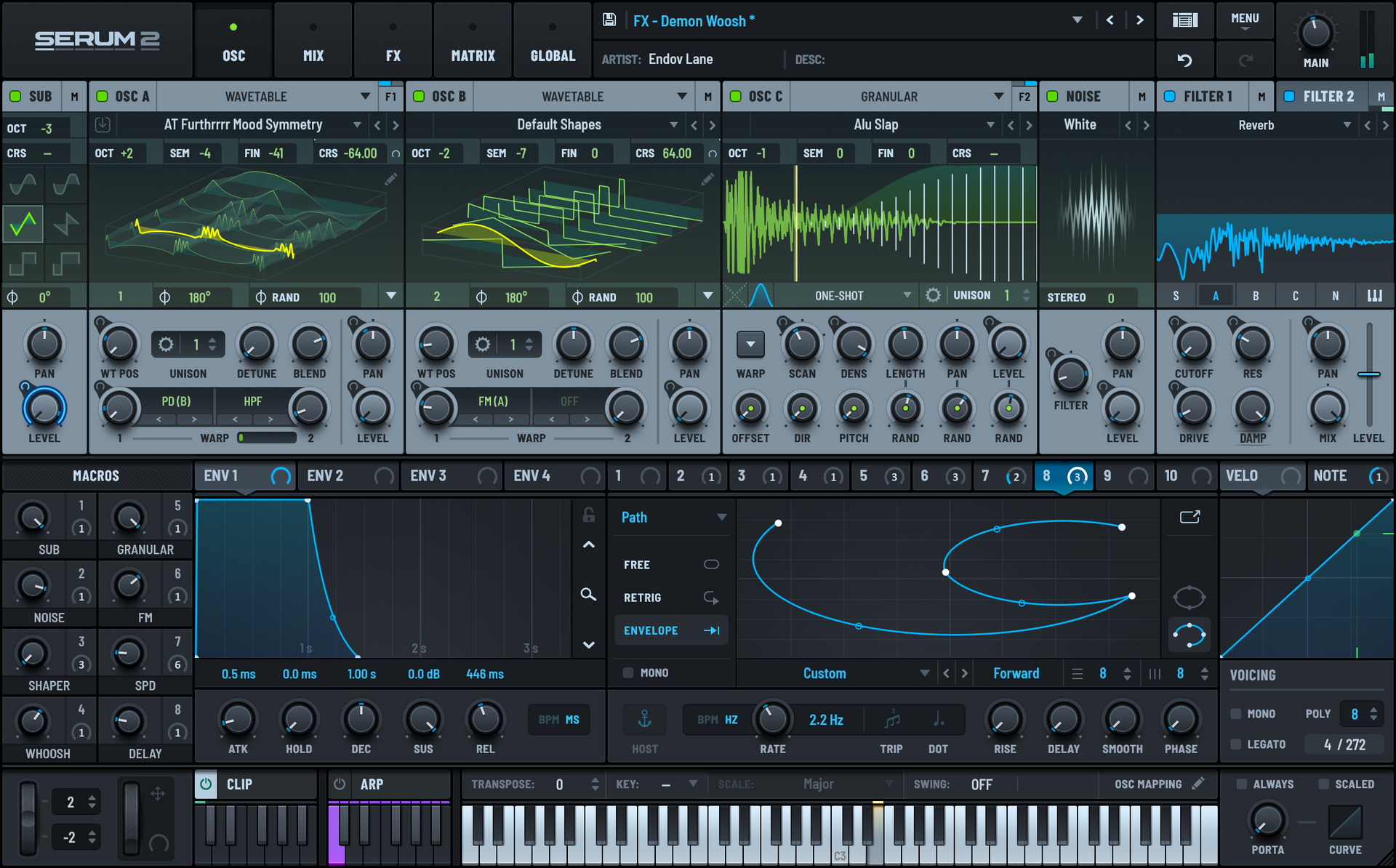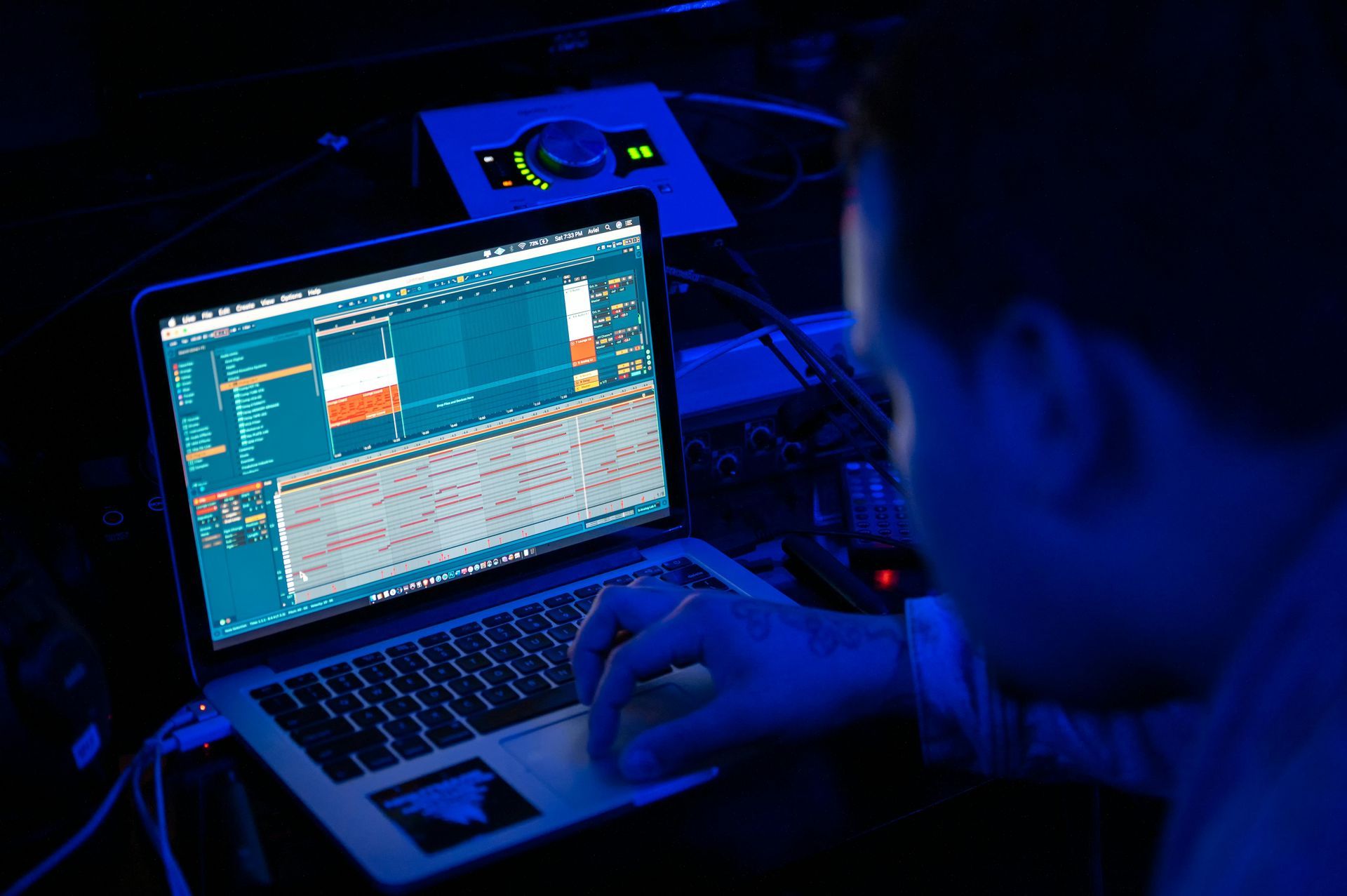Learning Electronic Music Production: A Beginner’s Guide
Learning electronic music production can seem daunting at first, but with the right guidance and resources, it becomes an exhilarating journey. This guide aims to provide beginners with a comprehensive roadmap to mastering electronic music production.

The realm of electronic music production is expansive, offering boundless creative opportunities. Whether you're drawn to the lively rhythms of house music or the intricate textures of ambient tunes, mastering the art of electronic music production allows you to bring your artistic ideas to life. Yet, the journey to becoming a thriving electronic music producer demands commitment and practice. Seeking mentorship from experienced professionals at a music school can fast-track your progress.
Embrace the journey, stay dedicated, and let your creativity soar.
Understanding Electronic Music Production
What is Electronic Music Production?
Electronic music production involves creating music using electronic devices and software. Unlike traditional music production, which relies on acoustic instruments, electronic music is crafted using synthesizers, drum machines, and digital audio workstations (DAWs). This process allows for a high level of creativity and innovation, as producers can manipulate sounds in ways that are not possible with traditional instruments.
The Role of Digital Audio Workstations (DAWs)
DAWs are essential tools in electronic music production. They provide a platform for recording, editing, and mixing music. Popular DAWs like Ableton Live, FL Studio, and Logic Pro X offer a range of features that cater to different production styles and preferences. Choosing the right DAW is a crucial step for any aspiring producer, as it becomes the central hub for all music production activities.
Essential Equipment for Beginners
Starting with electronic music production requires some basic equipment:
- A Computer: A reliable computer is the backbone of your production setup. Ensure it has sufficient processing power and memory to handle complex audio projects.
- DAW Software: Select a DAW that suits your workflow and production style. Many DAWs offer free trials, so you can explore different options before committing.
- MIDI Controller: A MIDI controller, such as a keyboard or pad controller, allows for more tactile interaction with your DAW and virtual instruments.
- Audio Interface: An audio interface improves the sound quality of your recordings and provides connectivity for microphones and instruments.
- Headphones and Monitors: High-quality headphones and studio monitors are essential for accurate sound monitoring and mixing.
The Importance of Learning from Industry Experts
Why Work with Established Professionals?
Learning from established professionals in the industry provides invaluable insights that are not available through self-study. These experts offer real-world experience, insider tips, and personalized feedback that can significantly accelerate your learning process. They help you avoid common pitfalls and guide you towards effective production techniques.
Benefits of Attending ICON Collective
ICON Collective is renowned for its comprehensive electronic music production programs. Here are some benefits of enrolling at ICON Collective:
- Expert Mentorship: ICON Collective’s instructors are seasoned professionals with extensive industry experience. Their mentorship helps students navigate the complexities of music production and develop a unique artistic voice.
- Hands-On Learning: The curriculum emphasizes practical, hands-on learning, allowing students to apply theoretical knowledge in real-world scenarios.
- Collaborative Environment: ICON Collective fosters a collaborative learning environment, encouraging students to work together and learn from each other’s experiences.
- Career Support: The school provides career support, helping students network with industry professionals and find opportunities in the music industry.
The Learning Process: Step-by-Step
1. Understanding Music Theory
A solid foundation in music theory is essential for creating compelling electronic music. Understanding scales, chords, and rhythm helps you construct melodies and harmonies that resonate with listeners. While electronic music often breaks traditional rules, knowing these basics provides a framework for experimentation.
2. Exploring Sound Design
Sound design is the art of creating unique sounds using synthesizers and other audio tools. This skill is crucial for defining your signature sound. Start by experimenting with different types of synthesis, such as subtractive, additive, and FM synthesis. Learn how to manipulate oscillators, filters, and envelopes to shape your sounds.
3. Mastering Beat Making
Beats are the backbone of most electronic music genres. Learn how to program drums and create rhythmic patterns that drive your tracks. Experiment with different drum kits and samples to find the right sounds for your style. Pay attention to groove and swing to make your beats more dynamic and engaging.
4. Recording and Editing
Recording techniques are not limited to vocals and live instruments. In electronic music, you might record samples, field recordings, or live performances with MIDI controllers. Learn how to edit and arrange these recordings in your DAW, using tools like quantization, slicing, and time-stretching to refine your tracks.
5. Mixing and Mastering
Mixing and mastering are critical stages in the production process. Mixing involves balancing the levels of different elements in your track, applying effects, and creating spatial depth. Mastering polishes the final mix, ensuring it sounds great on all playback systems. Invest time in learning these skills, as they significantly impact the quality of your music.
Building Your Production Skills
1. Practice Regularly
Consistent practice is key to improving your production skills. Set aside dedicated time each day to work on your music. Start with small projects and gradually take on more complex tasks as you build confidence.
2. Analyze and Deconstruct Tracks
Study tracks from your favorite artists and genres. Analyze their structure, sound design, and mixing techniques. Try to recreate these tracks in your DAW to understand how they were made. This exercise helps you learn new techniques and apply them to your own productions.
3. Participate in Online Communities
Join online forums and communities focused on electronic music production. Platforms like Reddit, Gearspace, and various online groups offer valuable resources and a space to connect with other producers. Sharing your work and receiving feedback from peers can provide new perspectives and ideas.
4. Attend Workshops and Masterclasses
Workshops and masterclasses offer intensive learning experiences with expert instructors. They provide an opportunity to dive deep into specific topics and gain practical skills. Many workshops also offer hands-on sessions where you can apply what you’ve learned in real-time.
Creating Your Unique Sound
1. Experiment with Different Genres
Don’t limit yourself to a single genre. Experimenting with different styles of electronic music can broaden your creative horizons and help you discover new techniques. Blend elements from various genres to create a unique and innovative sound.
2. Develop Your Signature Style
Your signature style sets you apart from other producers. Focus on developing a sound that is distinctly yours. This might involve using specific synth patches, drum samples, or production techniques that become a hallmark of your music.
3. Use Samples Creatively
Sampling is a staple in electronic music production. Use samples creatively by chopping, looping, and processing them in unexpected ways. Explore different sample libraries and field recordings to find unique sounds that add character to your tracks.
4. Incorporate Live Elements
Incorporating live elements, such as recorded instruments or vocals, can add a human touch to your electronic productions. Experiment with recording live performances and blending them with electronic sounds to create a hybrid style.
Marketing Your Music
1. Building an Online Presence
Creating a strong online presence is essential for reaching a wider audience. Set up profiles on social media platforms, music streaming services, and websites like SoundCloud and Bandcamp. Regularly share your music, engage with your audience, and use analytics to understand your listeners.
2. Networking with Industry Professionals
Networking is crucial in the music industry. Attend industry events, join professional associations, and connect with other musicians, producers, and industry professionals. Networking opens up opportunities for collaborations, gigs, and mentorship.
3. Promoting Your Releases
Effective promotion ensures that your music reaches the right audience. Use a combination of social media marketing, email newsletters, and press releases to announce your releases. Collaborate with influencers and music blogs to gain exposure.
4. Performing Live
Live performances are a great way to connect with your audience and showcase your music. Practice your DJing or live performance skills and seek out opportunities to perform at local venues, festivals, and online events. Live performances can also help you build a loyal fanbase.
Learning Electronic Music Production at ICON Collective
ICON Collective offers a comprehensive electronic music production program designed to equip students with the skills and knowledge needed to succeed in the industry. The program covers all aspects of music production, from sound design and beat making to mixing and mastering.
Expert Instructors
The instructors at ICON Collective are industry veterans who bring a wealth of experience to the classroom. They provide personalized mentorship, helping students navigate the intricacies of music production and develop their unique sound.
Hands-On Experience
ICON Collective’s curriculum emphasizes hands-on learning. Students work on real-world projects, gaining practical experience in all aspects of music production. This approach ensures that graduates are well-prepared for the challenges of the industry.
Collaborative Environment
The collaborative environment at ICON Collective fosters creativity and innovation. Students have the opportunity to work with peers from diverse musical backgrounds, learning from each other and creating unique projects together.
Career Support
ICON Collective provides comprehensive career support, helping students network with industry professionals and find opportunities in the music industry. The school’s strong industry connections and alumni network open doors to internships, gigs, and collaborations.
Frequently Asked Questions::
What is the best DAW for beginners?
Choosing the best DAW depends on your personal preferences and production style. Popular options for beginners include Ableton Live, FL Studio, and Logic Pro X. Each DAW has its own unique features, so it’s a good idea to try out a few before making a decision.
How long does it take to learn electronic music production?
The time it takes to learn electronic music production varies depending on your dedication and practice. With consistent effort, you can start producing your own tracks within a few months. Mastery, however, may take several years of continuous learning and practice.
Do I need expensive equipment to start producing electronic music?
You don’t need expensive equipment to start producing electronic music. A basic setup with a reliable computer, DAW software, a MIDI controller, and good headphones is sufficient for beginners. As you progress, you can invest in more advanced gear.
Can I learn electronic music production online?
Yes, there are many online resources available for learning electronic music production. Online courses, tutorials, and forums provide valuable information and guidance. However, attending a school like ICON Collective offers the added benefits of expert mentorship, hands-on learning, and networking opportunities.
What genres can I produce with electronic music production?
Electronic music production encompasses a wide range of genres, including house, techno, dubstep, drum and bass, ambient, and more. The skills you learn can be applied to any genre, allowing you to explore and create music in different styles.
How important is music theory in electronic music production?
While you can create electronic music without extensive knowledge of music theory, understanding the basics of scales, chords, and rhythm can enhance your creativity and help you make more informed musical decisions. A solid foundation in music theory provides a framework for experimentation and innovation.



